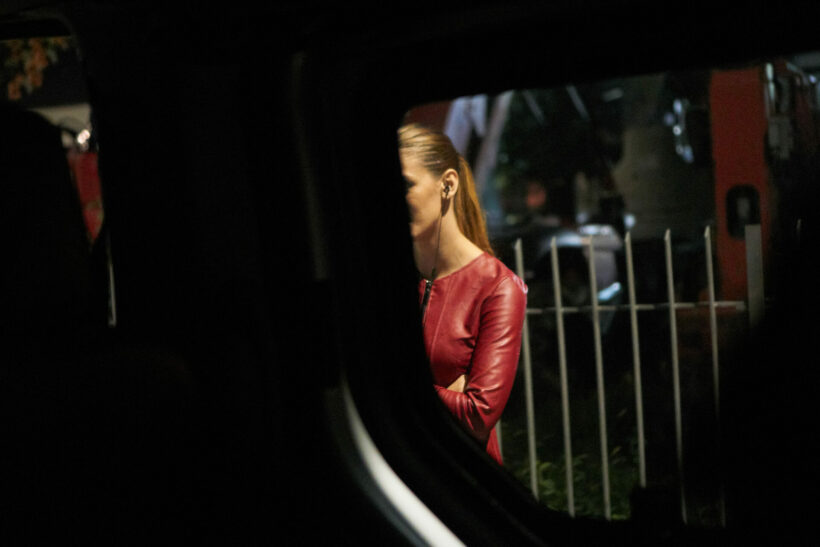On the occasion of the International Day Against Trafficking of 30 July, the Pope John XXIII Community has released the report “The new faces of people trapped in trafficking” on its website
Here is a summary.
The faces of trafficking have changed after the years of the pandemic.
If, according to the European Commission, sexually exploited women and girls still represent the majority of people victims of cross-border trafficking to Europe – and [if] arrivals along the Balkan and Algerian route have never stopped – trafficking of people from the European Union is also on the rise. These people are exploited from the East to northern and southern Europe in indoor sexual exploitation and in labor exploitation or begging.
But there are also cases of trafficking for sexual purposes of transgender people from Peru, Venezuela and Argentina across Spain and, visa in hand, towards other European countries including Italy.
You meet them on the sidewalks of Spain and Italy, with a load of debts for hormone treatments they cannot do without.
Discriminated in various contexts, in some cases without roots because they were driven out of their own families and deprived of the possibility of an alternative as transsexuals, with a registered name of one gender and a name of the opposite gender for clients.
Internal trafficking and financial crimes
It is not necessary for the person to be physically transported from one place to another for the crime of trafficking to be recognized.
Internal trafficking, i.e. within national borders, is spreading more and more frequently.
Acts, means and purpose are the three elements that distinguish the crime. For this reason, the protection of potential victims must take place in an anticipated phase with respect to the time of ascertainment of the crime and can be independent of the duty of the authorities to investigate traffickers and exploiters.
There are Bulgarian women (often belonging to Roma communities, lured by fake boyfriends and removed from their villages) hired online in Black Sea bars to offer “escort services”.
Trafficking of human beings can take place even if the victims initially agreed to provide paid sexual services or acts.
A trafficker may target a victim after she has applied for a job or migrated to earn a living.
It is the means used to exploit the person that determines the crime and not the initial or subsequent consent of the victim.
The “faces” of the crime change but not its substance.
There are Chinese women in massage centers and at the same time in undeclared sweatshops who, despite having lived for years in European countries, are victims of forms of trafficking and serious exploitation in different cities in the same country.
These forms of trafficking are managed by brokers who inculcate the normalization of this recruitment.
The persons who tell their stories turn out not to see [the abuse going on] and have never experienced any other way of working and don’t even imagine it.
Shame – which would fall on their family of origin if they did not fulfill their duties – is the form of blackmail and threat used by the exploiters.
Among the causes of this incalculable growth and variety of “faces” of trafficking [are], according to the Report Trafficking in Persons [organization], the deep economic crisis and political violence that are spreading both as a result of Covid-19 and as a result of the Russian- Ukrainian conflict. [To these causes can be] added the use of new technologies by traffickers in order to recruit preys and organize their exploitation, use that is fast and difficult to control.
Trafficking in human beings is a crime motivated by high profits.
Banks and other financial institutions are best placed to identify and report crimes that often occur in conjunction with human trafficking, such as theft of wages, money laundering and bribery, payments associated with the transportation of victims and other logistical services (for example, hotels or airline tickets) and the collection or movement of proceeds generated by the exploitation of victims of trafficking and the sale of goods produced through their exploitation. For this reason, victims can be targeted for financial crimes they are forced into by the exploiters themselves or illegal transactions [made by exploiters] using the identities and bank accounts of their prey. In all these new cases of trafficking, the urgency of protecting the privacy of the victims should not be forgotten.
In fact, through the use of new technologies, the risk of being traced and [of becoming] victims of re-trafficking for various purposes is very high.
The Comunità Papa Giovanni XXIII (Pope John XXIII Community) has been on the side of victims of trafficking since the 1990s when a growing number of migrants from Albania and later from Nigeria arrived in Italy.
In particular, Don Oreste Benzi started the Servizio Antitratta (Anti-Trafficking Service) with the so-called “condivisione di strada” – “sharing of the street”- or meeting with women and adolescents forced into prostitution on the Italian streets to build a relationship of trust, restore dignity to women and offer a way of exit.
The meeting and dialogue with women, men, adolescents, girls and street children then spread to different parts of the world and in different ways to take their side where they are and offer an opportunity for redemption to every person who as such cannot be considered a commodity.
Operators and volunteers of the Anti-Trafficking Service (Servizio antitratta) have , over the years, adopted a person-centred, intercultural and interreligious, intersectional and trauma-sensitive approach. All the people who have survived trafficking and exploitation, with their own migratory background, their own spiritual dimension and their own history of multiple violence before, during and after the journey, can feel supported in a welcoming family context and, after an initial phase of recovery, can become the protagonists of their well-being and their inclusion.










